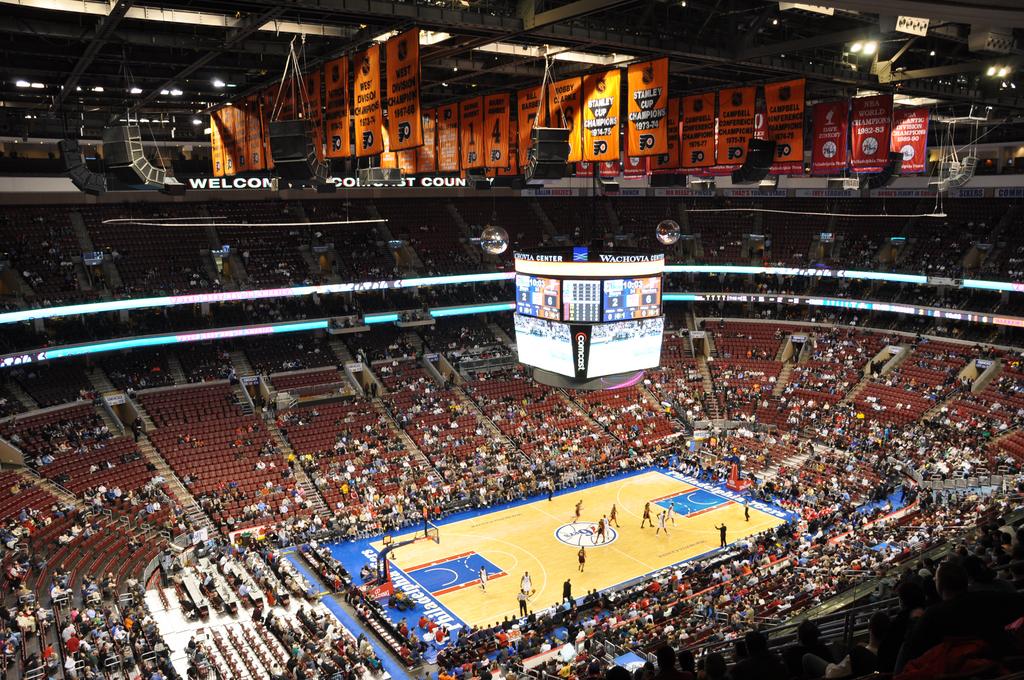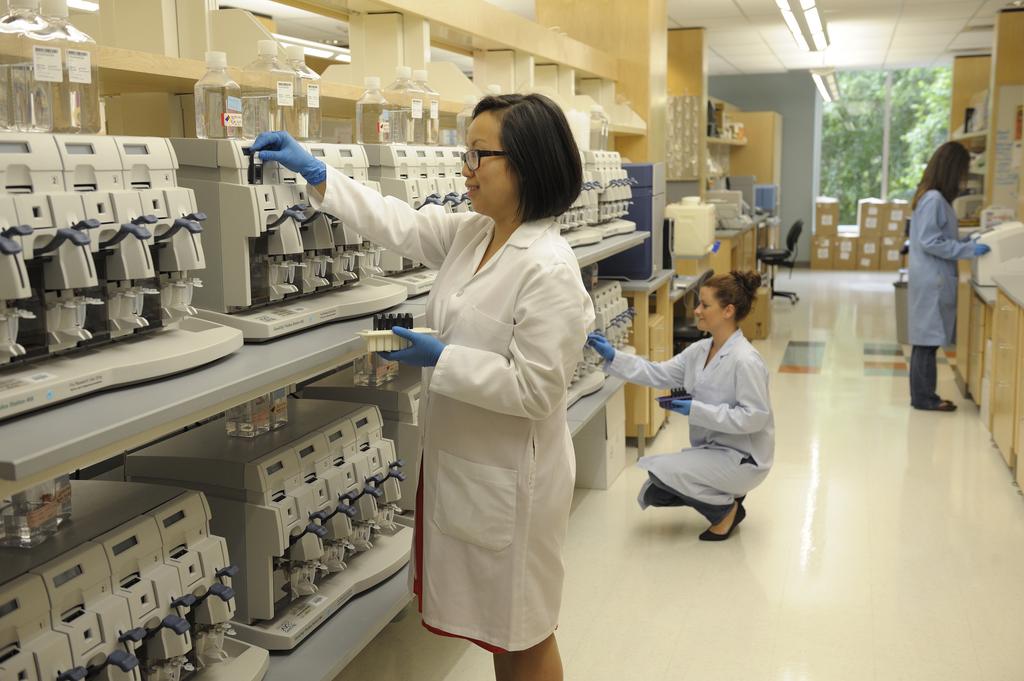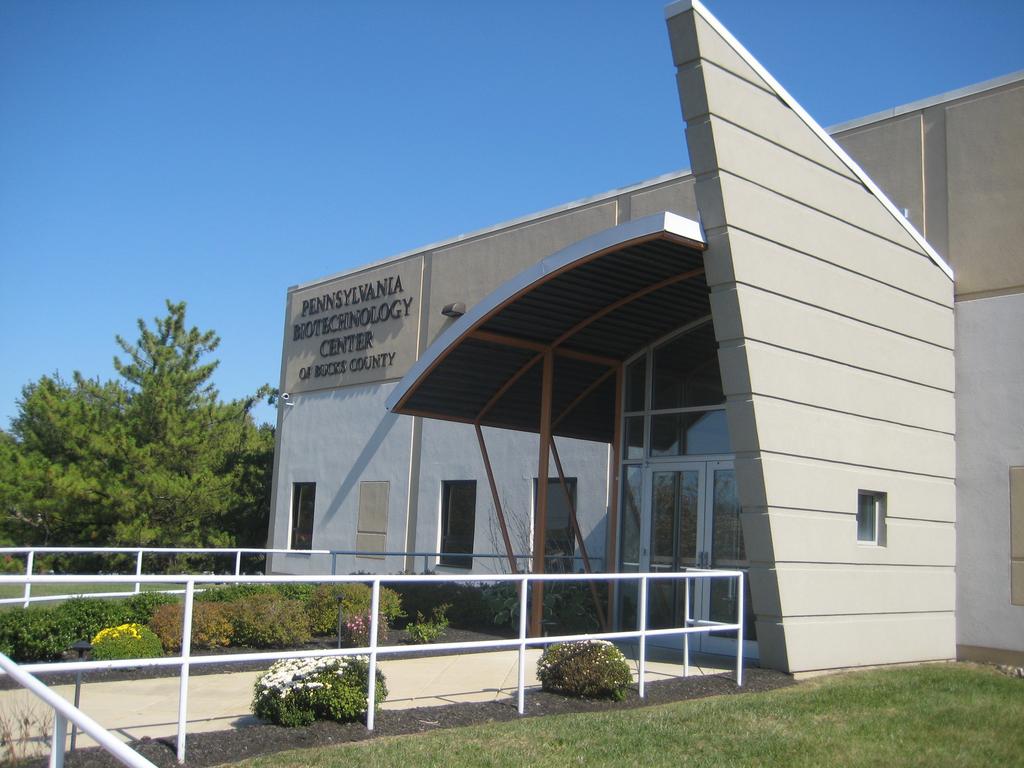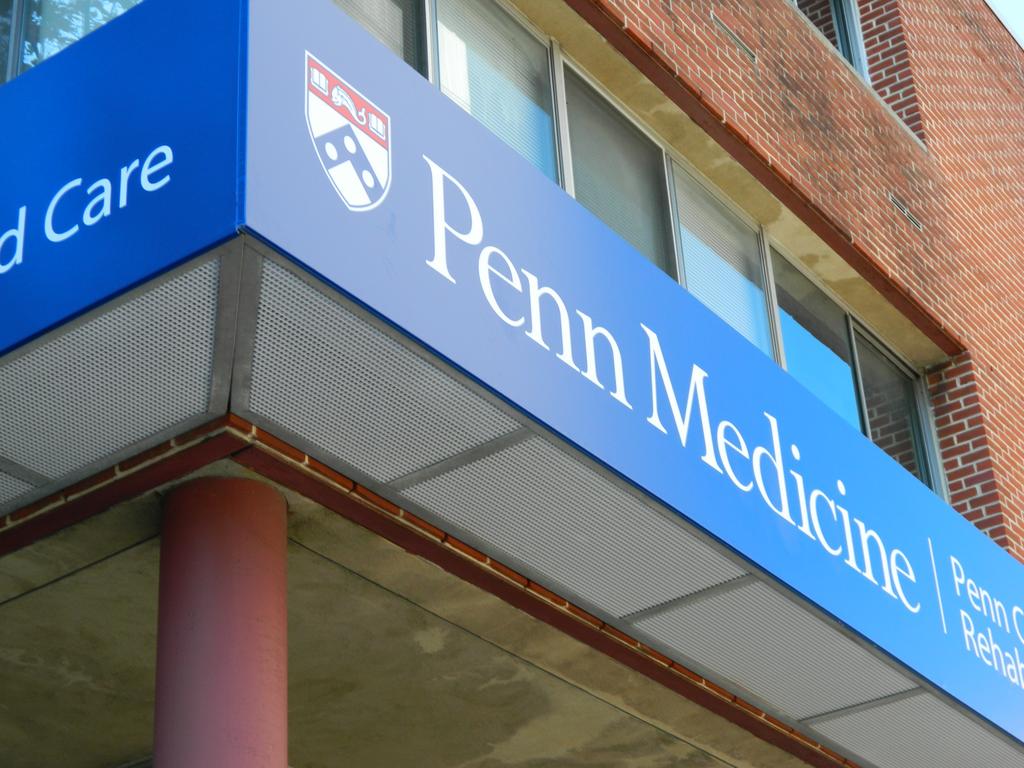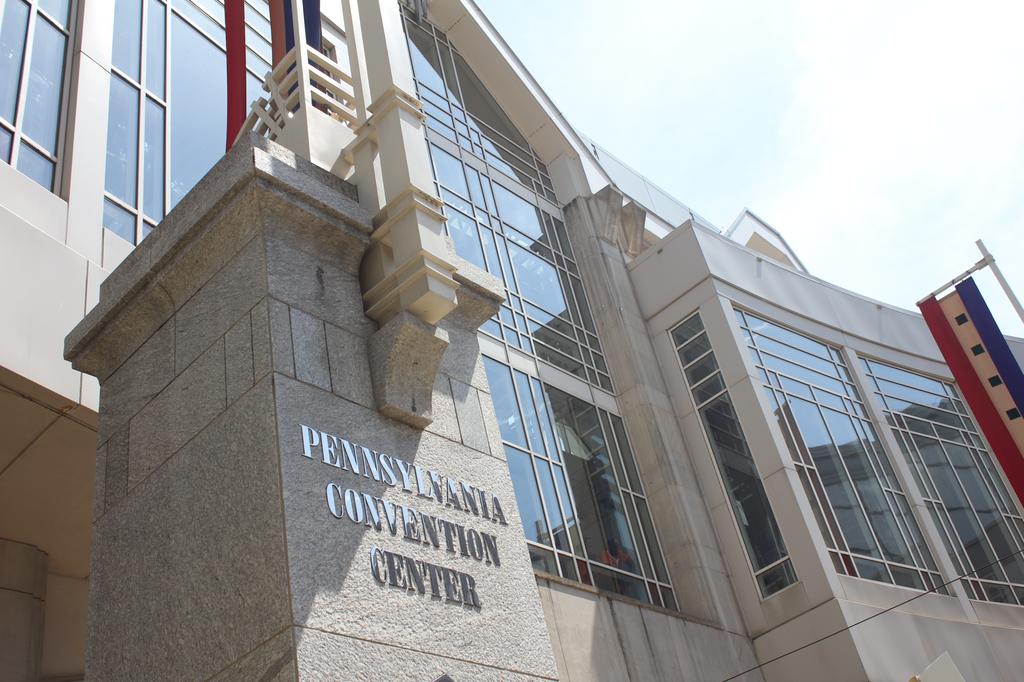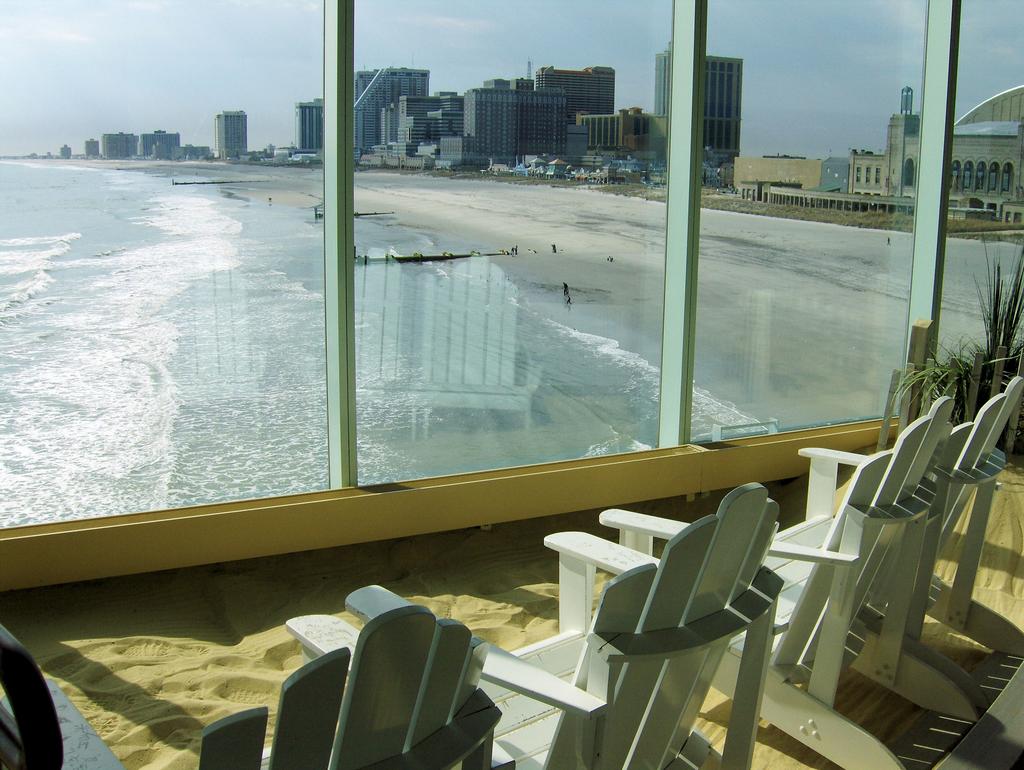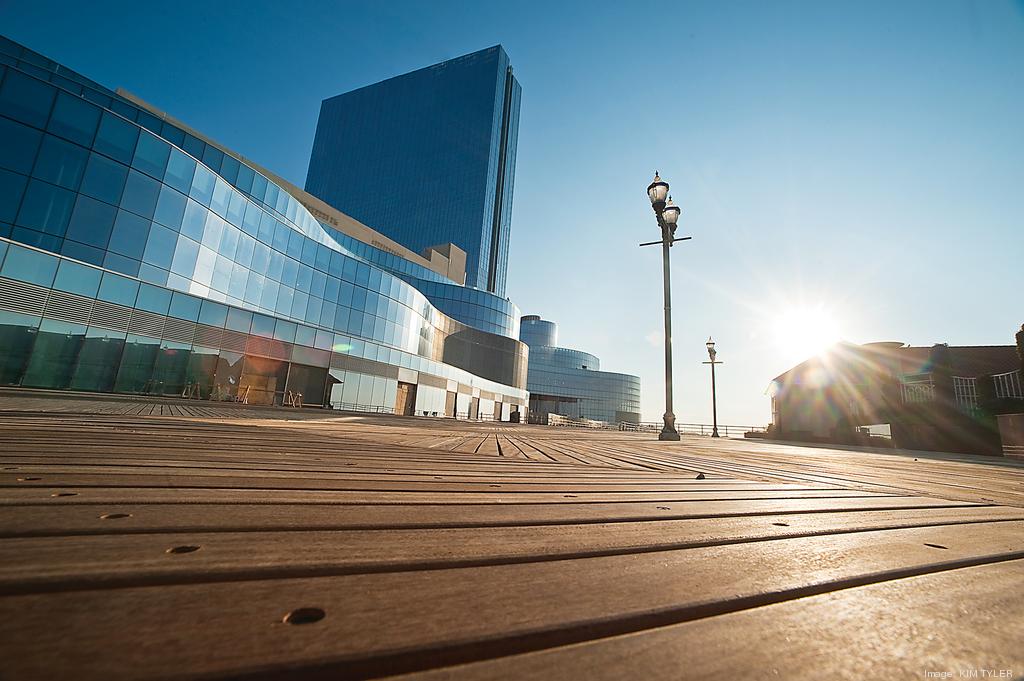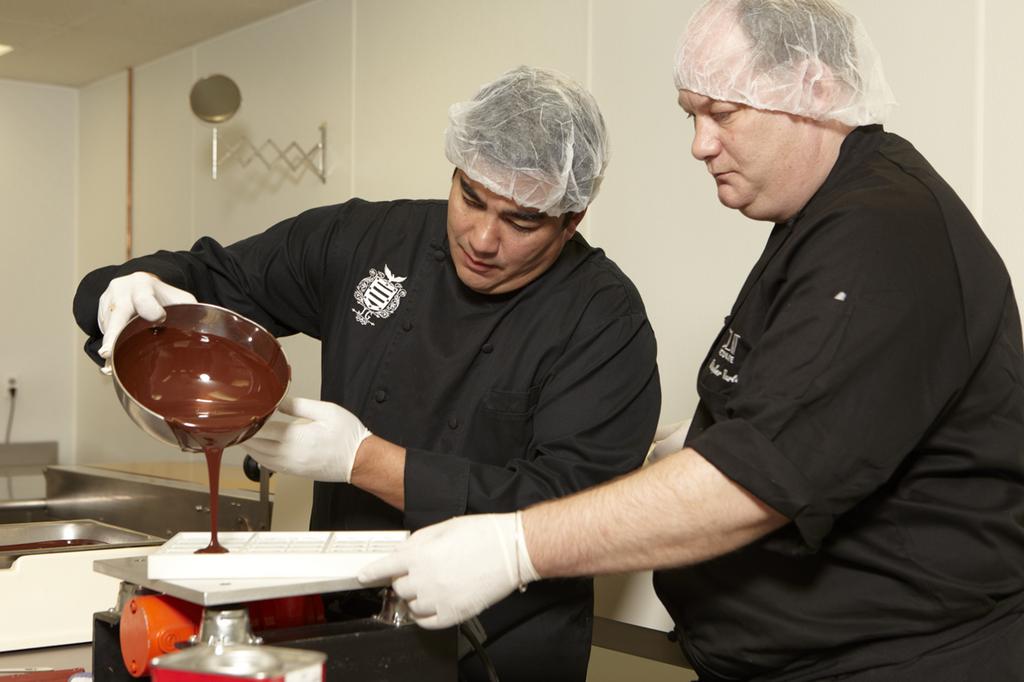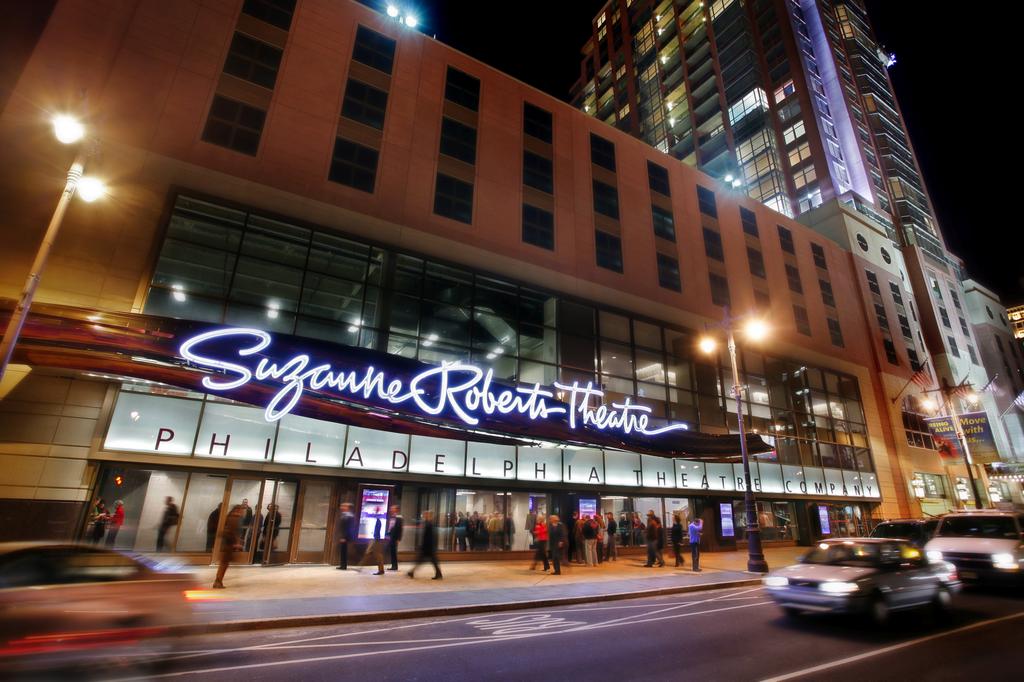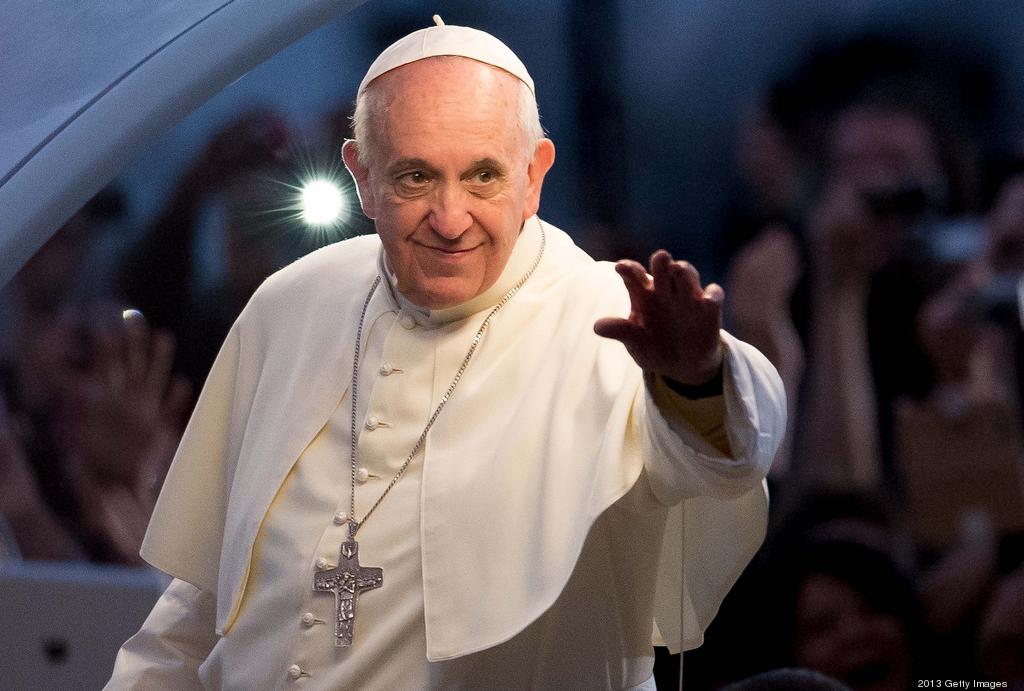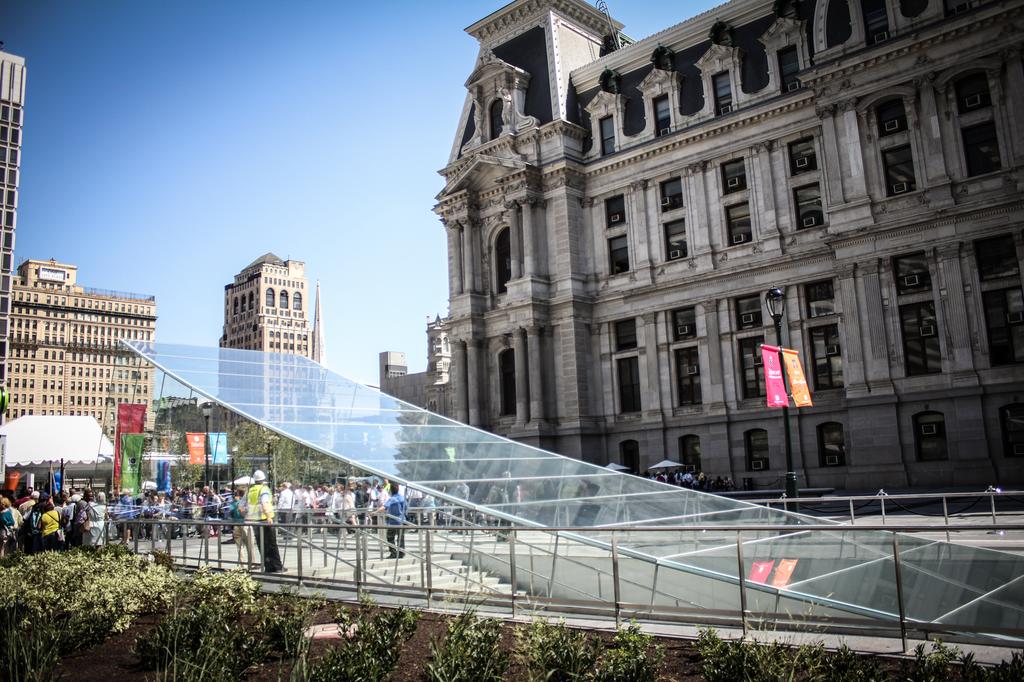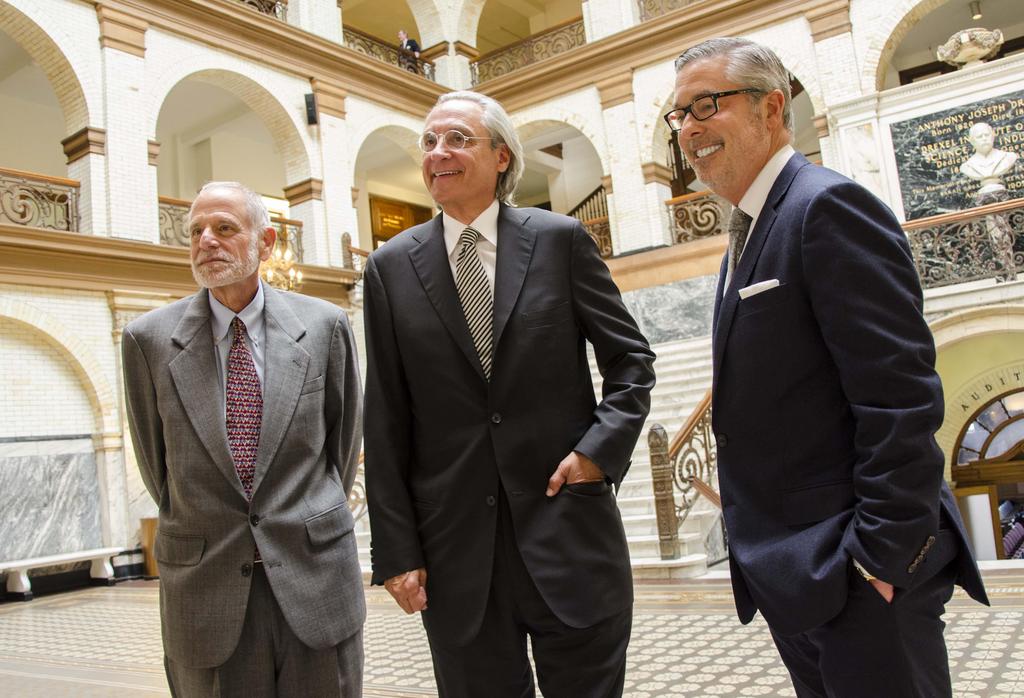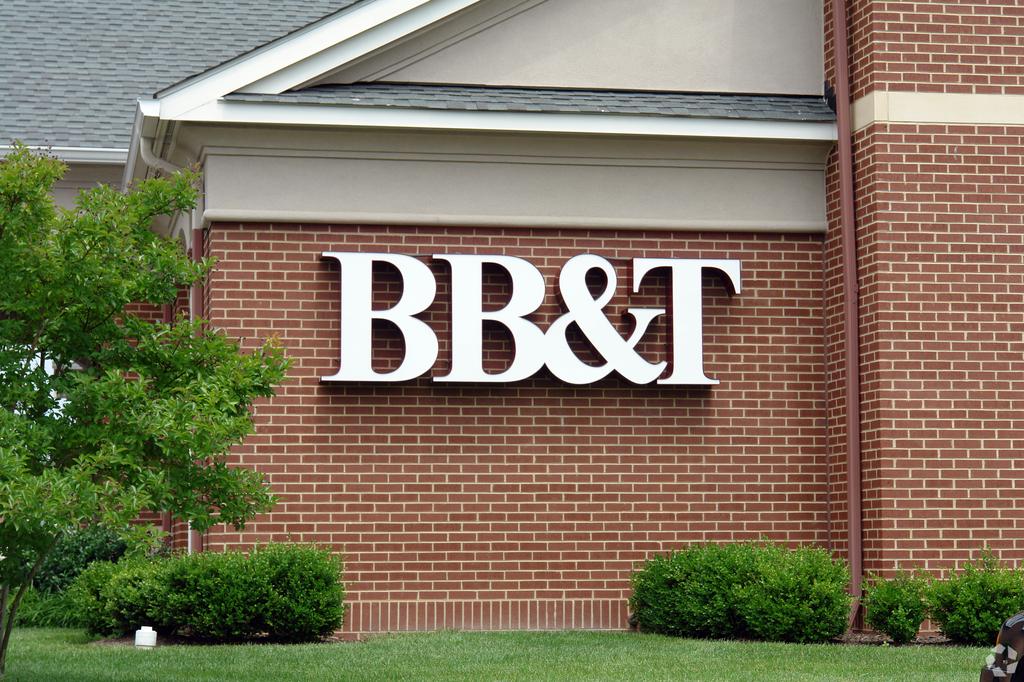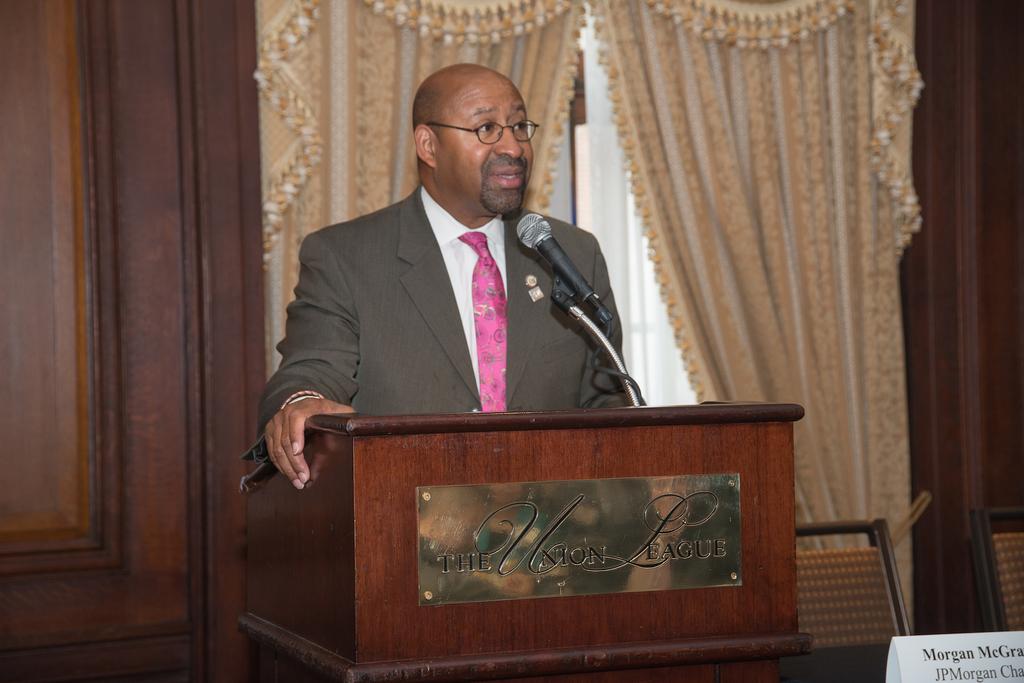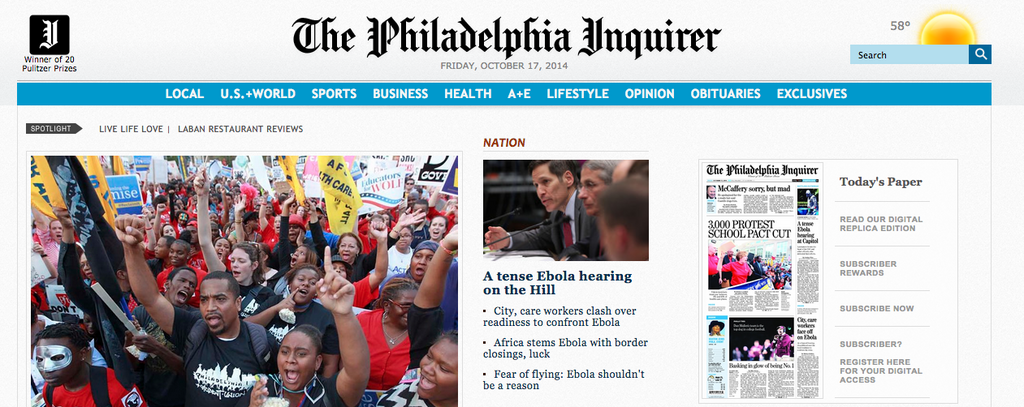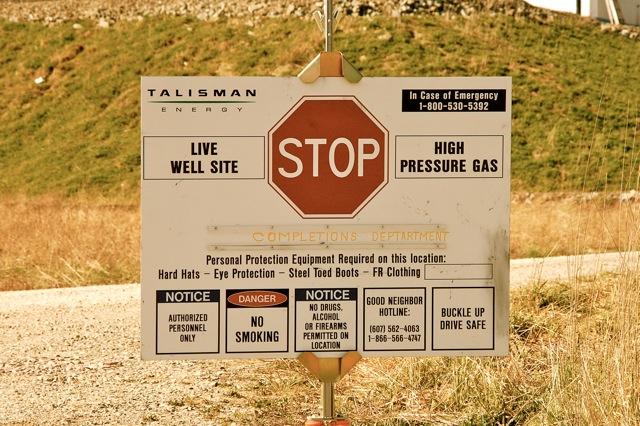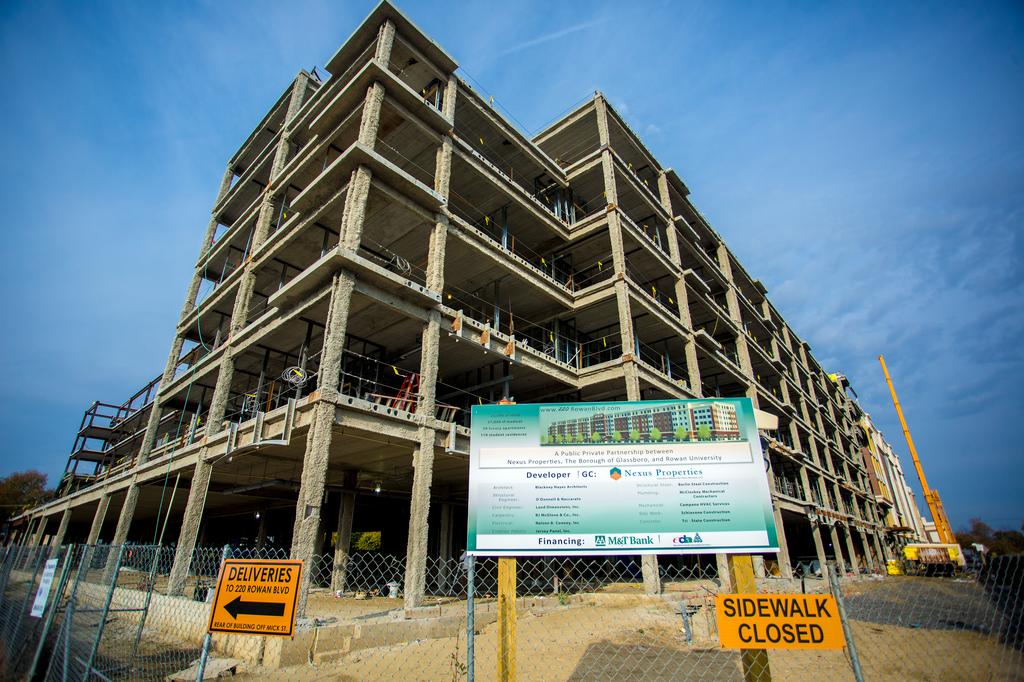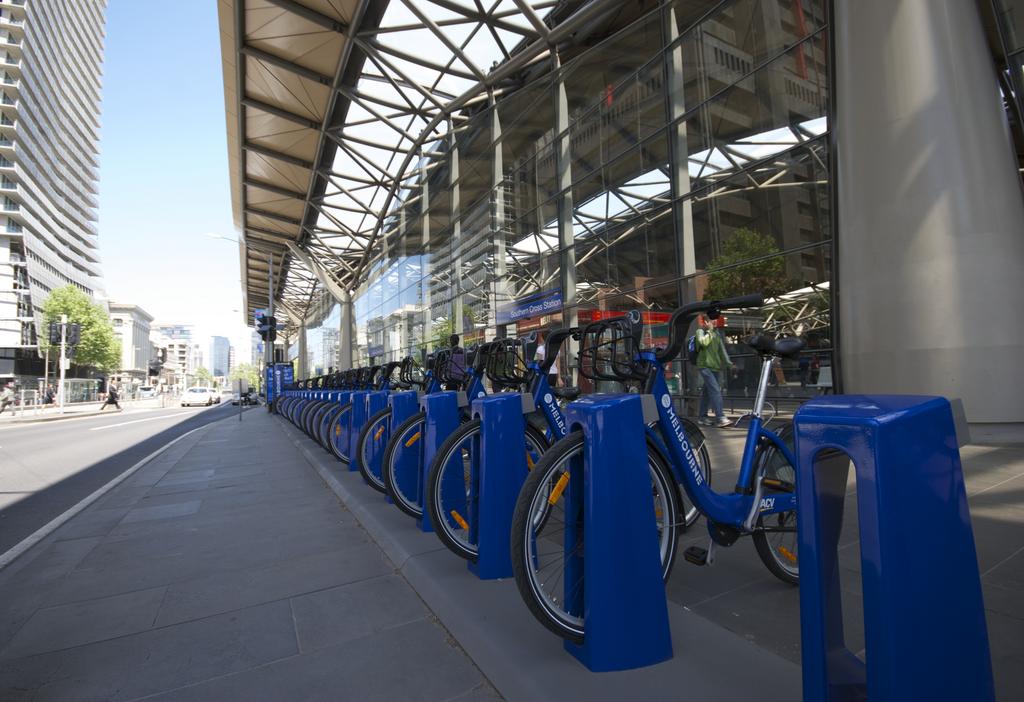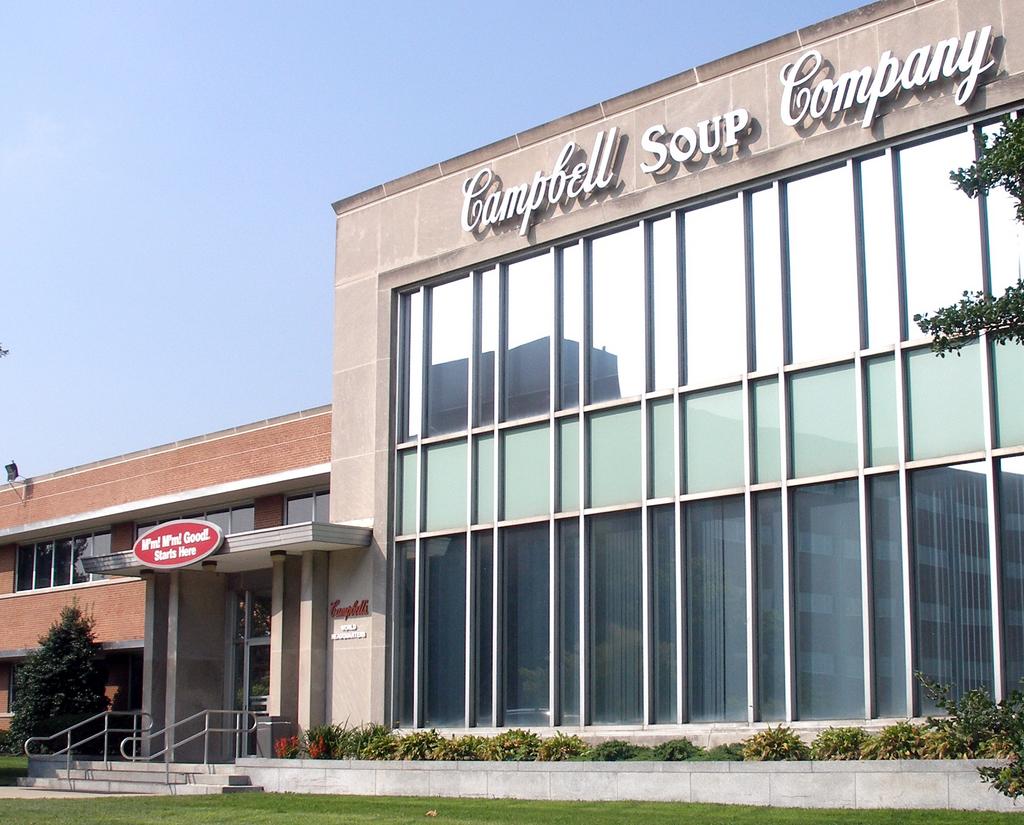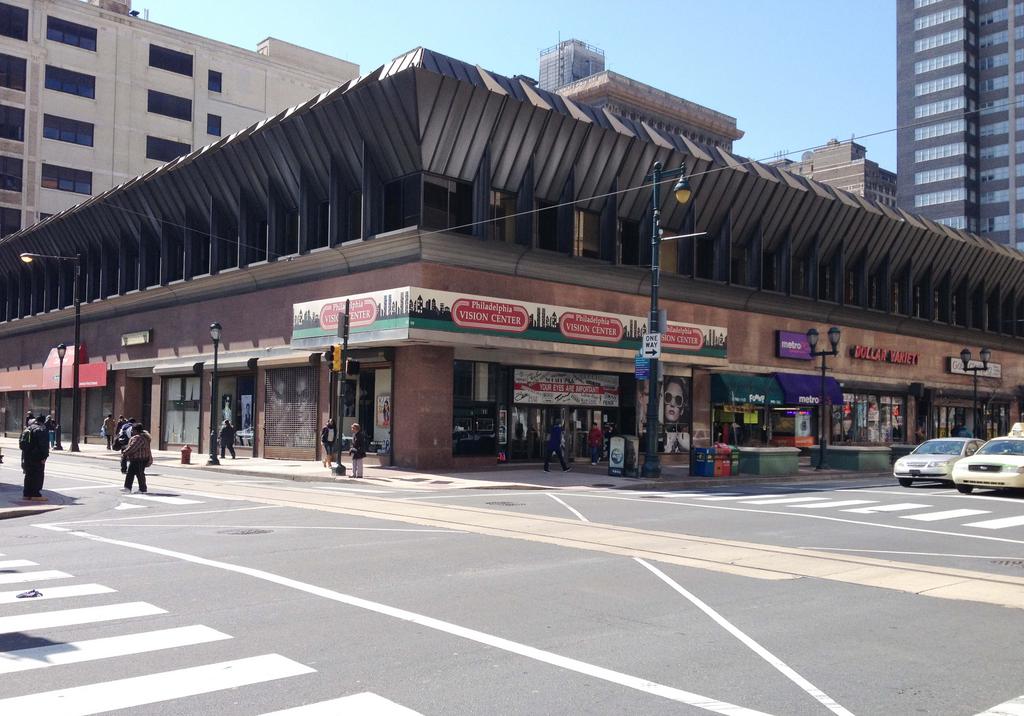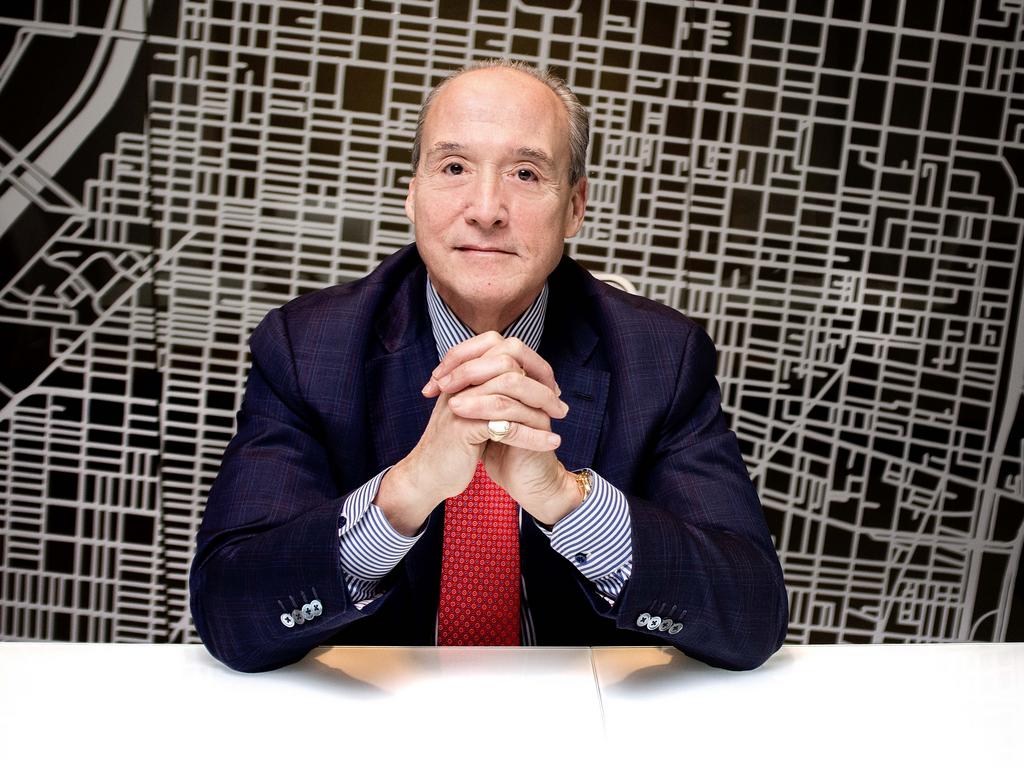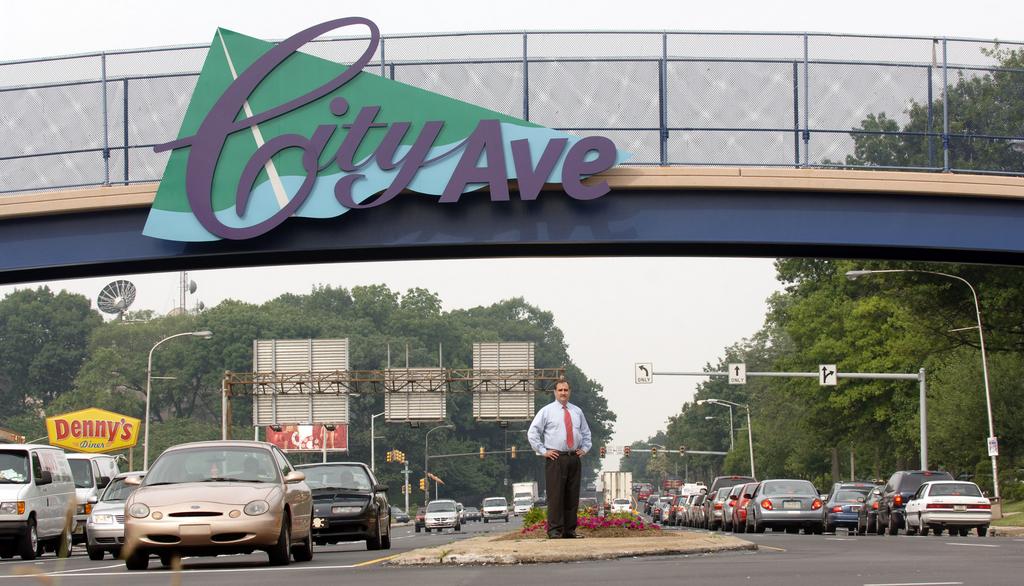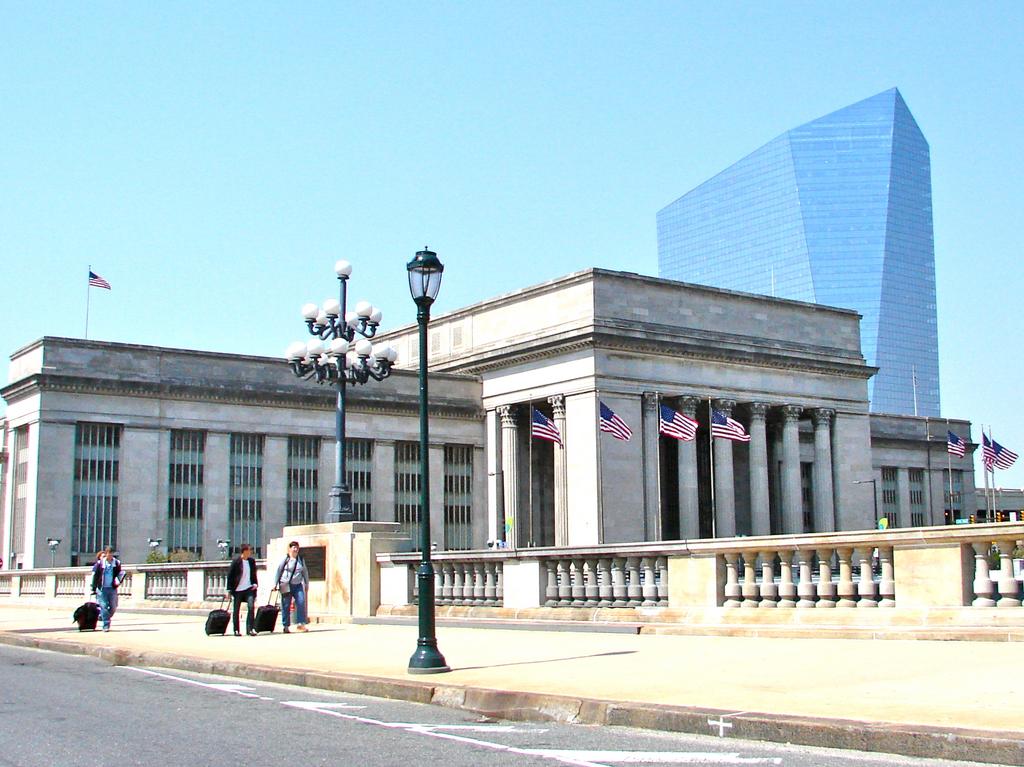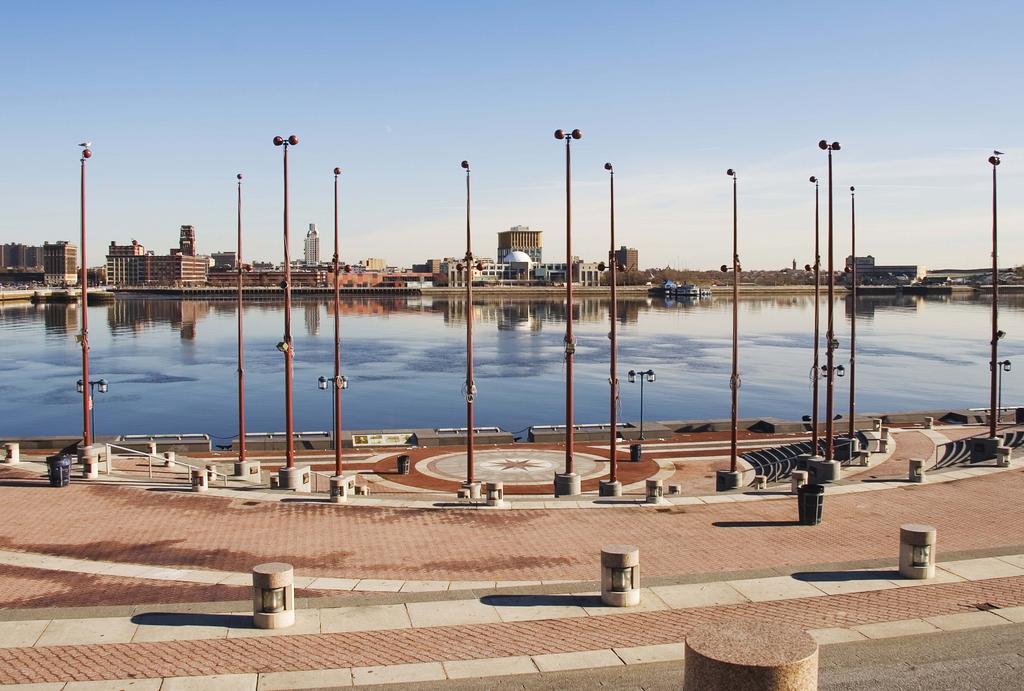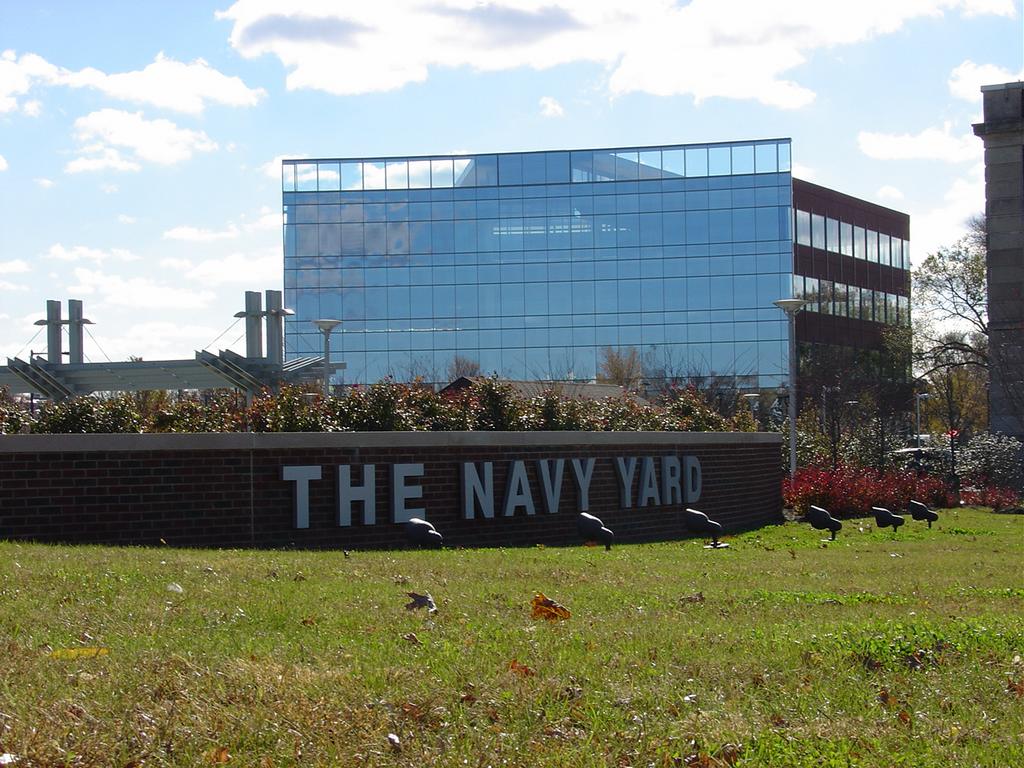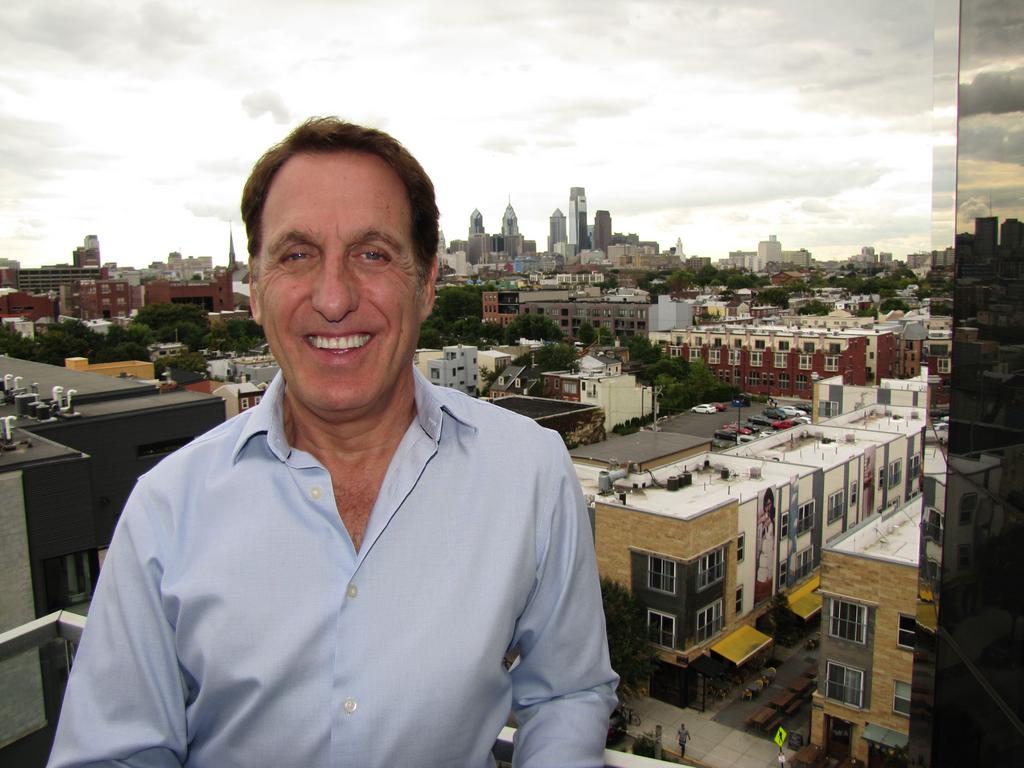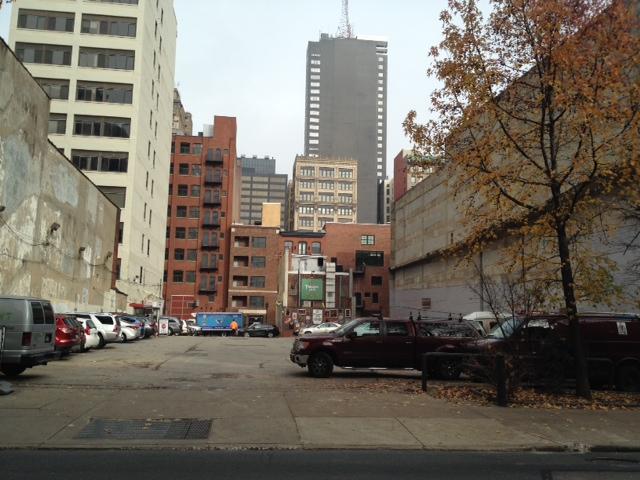With so many projects and events taking root in the region, Greater Philadelphia is set to transform in 2015.
Pope Francis is coming, along with a flock of millennials. Camden is growing, and so is the new Comcast tower in Center City. By 2016, we'll have a brand new mayor and a popular bike share system.
These events could have a considerable impact on the region, inspiring one local expert to call 2015 "a milestone year" for Philadelphia.
"In the past 10 or 15 years, we've seen this shift from that less-than-positive way of thinking to a much more optimistic, much more can-do kind of spirit that is infectious and contagious and attractive," said Matt Cabrey, executive director of Select Greater Philadelphia. "We've done a good job in creating awareness about the benefits of living and working and establishing a business and growing a business and raising a family in the region. We need to continue that."
The PBJ editorial staff is proud to present 50 transformations that will reshape the region. (This package is best viewed as one page. To do so, click here.) To read about our 10 veteran and 10 future transformers (subscription required) click here.
76ers building practice facility in Camden
The Philadelphia 76ers are building an $82 million complex to house a practice facility and team headquarters in Camden. New Jersey put together an incentive package of tax credits to lure the basketball team — which initially had settled on the Philadelphia Navy Yard as the site for the project.
Why it's transformational: Expected to be completed in 2016, the project will bring 200 existing jobs and at least 50 new jobs to Camden and provide the city with another development project — and high-profile organization — for its waterfront. The Sixers will join the Flyers as pro teams that play in Philadelphia, but have their headquarters in South Jersey.
The players: Joshua Harris, the 76ers managing owner and the co-founder of Apollo Global Management, a New York-based leveraged buyout specialist; CEO Scott O'Neil, Camden Mayor Dana Redd and N.J. Gov. Chris Christie.
Penn Medicine/CHOP expansion
Penn Medicine and the Children's Hospital of Philadelphia are continuing their building boom in West Philadelphia and beyond. In addition to the hundreds of million of dollars worth of construction projects already completed at the old Civic Center site, CHOP and Penn Medicine's Hospital of the University of Pennsylvania and Presbyterian Medical Center continue to expand their footprint in the city. The $127 million Pavilion for Advanced Care at Penn Presbyterian opened this month, and the $38 million Henry A. Jordan Medical Education Center adjacent to the Perelman Center for Advanced Medicine is scheduled to open early this year. Penn Medicine has also started planning to build a $1.5 billion patient tower on the site of Penn Tower. CHOP has started work on a 2.5 million-square-foot office/research complex on Schuylkill Avenue, the first-phase of which will include, a 22-story office tower at the base of Bainbridge Street. The pediatric medical center is also set to open a 115,000-square-foot Specialty Care Center in King of Prussia in May.
Why it's transformational: The expansion of both the Hospital of the University of Pennsylvania and Children's Hospital of Philadelphia will allow both medical centers to continue to bring advanced tertiary-care programs to the region and, equally important, attract top scientists — and their research grants.
The players: Ralph Muller, president and CEO of the University of Pennsylvania Health System; Dr. Steven Altschuler, CEO of CHOP.
Abington-Jefferson hospital merger
Abington Health and Thomas Jefferson University and Jefferson Health System expect to combine organizations. Abington Health based in Montgomery County and Jefferson in Center City signed a letter of intent to merge in October. They expect to finalize their agreement next month, then secure the necessary approvals to move forward with the union later this year.
Why it's transformational: During a time when health care providers of all types and sizes are forging alliances to better position themselves for health care reform, Jefferson and Abington Health are working on a full-fledged merger in which both organizations will have equal representation on the new board envisioned to run the combined entity. The merger could provide a template for other health-system combinations.
The players: Jefferson CEO Dr. Stephen Klasko and Abington Health President and CEO Larry Merlis.
Growth of Coriell Institute
Coriell Institute's for-profit venture, Coriell Life Sciences, is attempting to commercialize its personalized medicine technology and data. The Camden company is looking to leverage the framework of the Coriell Personalized Medicine Collaborative, a large research study involving more than 7,000 study participants, physicians, scientists, ethicists, genetic counselors and information technologists. The goal of the study is to gather and better understand genomic information so it can be used in patient care.
Why it's transformational: Coriell Life Sciences has developed a proprietary system for securely storing sequenced genetic data and incorporating genetic risk information into patients' electronic medical records. The system is designed to help doctors make better treatment decisions, such as determining the most effective drug therapy for a patient based on his or her genome, while also developing best practices covering the use of genomic information in patient care.
The players: Scott Megill, president and CEO of Coriell Life Sciences; Michael F. Christman, president and CEO of the Coriell Institute; Watson, the IBM supercomputer that is assisting the Coriell Life Sciences in its data gathering and processing.
Inovio vaccines, treatments progress
Inovio is moving forward with efforts to develop synthetic DNA-based vaccines and therapies, including a universal influenza vaccine. The Plymouth Meeting company suffered a setback in November when Inovio and Roche terminated an agreement to jointly develop Inovio's experimental immunotherapy targeting prostate cancer. The two companies are continuing to work together on a potential hepatitis B virus treatment. Inovio plans to independently begin human testing of its prostate cancer vaccine during the first half of the year.
Why it's transformational: Inovio is competing in the increasingly crowded field of developing therapies that stimulate a person's own immune system to prevent and treat cancer and infectious diseases. Its experimental products have the potential to protect millions of people from sickness or death caused by disease. The delivery of DNA-based vaccines into cells has proven to be a major stumbling block. Inovio's strategy for overcoming that hurdle is an electroporation technique that uses controlled, millisecond electrical pulses to create temporary pores in the cell membrane through which the vaccines are delivered.
The players: Dr. Joseph Kim, president and CEO of Inovio; Severin Schwan, CEO of Roche.
Marijuana decriminalization
Advocates continue to push for legalizing the medicinal and/or recreational use of marijuana. In October, Philadelphia Mayor Michael Nutter signed legislation put forth by City Councilman James Kenney that makes possession of small amounts of marijuana (30 grams or less) a civil offense punishable by a fine of up to $100 instead of a misdemeanor that results in a criminal record. A bigger step for decriminalizing marijuana in Pennsylvania failed to occur in Harrisburg, where separate bills that would legalize the medicinal and recreational use in Pennsylvania failed to reach the governor's desk. A medical marijuana bill introduced by state Sen. Daylin Leach, D-Montgomery County, passed the Senate by a 43-7 vote in December and was sent to the House, but it died when the legislative session ended. The effort begins again this year with new Gov. Tom Wolf, who supports legalizing the medicinal use of marijuana — but said he'd prefer to analyze the experiences in states such as Colorado and Washington before considering whether to legalize the recreational use of marijuana.
Why it's transformational: If Pennsylvania approves the medicinal use of marijuana, it would join 23 other states — including New Jersey and Delaware — that have done so over the past eight years. The move would benefit patients with medical conditions who are unable to get relief from other therapies. If Pennsylvania approves the recreational use of limited amounts of marijuana it would become the fifth such state to do so (following Colorado, Washington, Oregon and Alaska). While opponents point to marijuana's reputation as a gateway to more serious, harsher drug use, advocates of legalizing marijuana say the action could have a major impact on the state's economy. A Cato Institute study found if recreational marijuana was legalized in Pennsylvania, the state would bring in more than $119 million annually in revenue from taxes and fees and save a large portion of the more than $200 million a year it spends arresting and prosecuting people for violating marijuana-related laws.
The players: Gov. Tom Wolf; state Sen. Daylin Leach; John Hanger, the state's incoming secretary of planning and policy; Chris Goldstein, co-chair of Philly NORML, the local chapter of the National Organization for the Reform of Marijuana Laws; N.A. Poe, a Philadelphia pot activist and comedian.
Pennsylvania Biotech Center expansion
The Pennsylvania Biotechnology Center of Bucks County is expanding thanks to a $4.2 million grant it secured from the U.S. Department of Commerce's Economic Development Administration.
Why it's transformational: The state funding will allow the Doylestown center, which serves as an incubator for about three dozen biotech startups, to grow by adding 15 new labs and increasing the emergency power capacity at the site. The center, already home to about three dozen early-stage life sciences companies, expects 90 new jobs to be created through that expansion. Expect some of those jobs to be filled by displaced researchers from downsizing Big Pharma companies in Pennsylvania and New Jersey.
The players: Dr. Timothy Block, president of the Pennsylvania Biotechnology Center; Louis P. Kassa III, the center's new chief operating officer; and U.S. Secretary of Commerce Penny Pritzker.
Sports betting in New Jersey
New Jersey continues its two-year battle to make sports betting legal in the state. Gov. Chris Christie in October signed a bill making sports betting legal at casinos and racetracks. The NCAA and the four major sports leagues filed a lawsuit, upheld by a U.S. District Court judge in November, to prohibit sports betting in New Jersey based on a 1992 federal law that restricts most forms of betting on sporting events in the nation to Nevada. New Jersey has appealed that ruling.
Why it's transformational: Advocates for sports betting believe it can spark a revival of the state's struggling casino and horse-racing industries. Most of the professional sports leagues oppose an expansion of sports betting out of fear it could sully their reputation for integrity in the eyes of fans. NBA Commissioner Adam Silver has said he believes the expansion of legalized sports betting is inevitable. He has expressed an interest in working with New Jersey and other states to establish a uniform federal structure to govern sports betting.
The players: Gov. Chris Christie, NBA Commissioner Adam Silver, the commissioners of the NCAA, NFL, NHL and MLB, New Jersey casino and racetrack operators.
Penn-Novartis partnership
Penn Medicine and Novartis continue their efforts to battle cancer. The industry-academic partnership began in 2012 when Novartis signed an exclusive global research and licensing agreement with Penn to further study and commercialize novel cellular immunotherapies developed by Penn researchers. The agreement followed the Penn research team's 2011 publication of breakthrough results in several chronic lymphocytic leukemia patients treated with a personalized immunotherapy technique, which involved stimulating patients' own immune system to locate and attack cancer cells. In September, the University of Pennsylvania, as part of its partnership with Novartis, unveiled plans to build a "first-of-its-kind" Center for Advanced Cellular Therapeutics on Penn's University City campus.
Why it's transformational: The development of therapies based on bioengineered T cells could lead to a host of new treatment options for cancer patients who don't respond, or no longer respond, to available cancer treatments.
The players: Dr. Carl June, director of translational research at Penn's Abramson Cancer Center and the leader of the research team developing the therapy; Dr. J. Larry Jameson, dean of the Perelman School of the Medicine at the University of Pennsylvania and executive vice president for the Penn Health System; Joseph Jimenez, CEO of Novartis.
Live! Casino project in South Philadelphia
Stadium Casino will build the $425 million, 200,000-square-foot Live! Hotel and Casino, which won Philadelphia's second and last casino license, in South Philadelphia. The structure will include a 240-room hotel, 2,000 slots and 125 tables.
Why it's transformational: The addition of Live! Hotel and Casino could spur commercial development opportunities in an area consisting mainly of sports stadiums, increasing the city's tourism. Conversely, it could cannibalize the state's gaming industry and take business away from surrounding casinos like SugarHouse Casino and Harrah's Philadelphia.
The players: David Cordish, chairman of Cordish Cos., and Robert W. Green, chairman of Parx Casino and Greenwood Racing Inc.
Rule changes at PA Convention Center
The Pennsylvania Convention Center implemented new work rules last year in May that gave exhibitors a more streamlined and cost-effective experience with more flexibility and freedom with their booths — something that's been an ongoing issue among major groups doing business in Philadelphia.
Why it's transformational: The new work rules will make Philadelphia more competitive with cities like Boston and Chicago. New and returning business secured as a result of the implementation will fill hotel room nights that have been lagging because previous stringent work rules had conventions shying away from the city. The business booked will result in more economic impact and jobs generated for the city.
The players: Bob McClintock, senior vice president and chief operating officer of convention centers for SMG; John McNichol, president and CEO of the Pennsylvania Convention Center; Lorenz Hassenstein, general manager of the Pennsylvania Convention Center; and Jack Ferguson, president and CEO of the Philadelphia Convention & Visitors Bureau.
The 'Pop-Up' Parks
The city's temporary pop-up parks like the Spruce Street Harbor Park and the Pennsylvania Horticultural Society (PHS) Pop-Up Garden have made use of vacant lots.
Why it's transformational: The temporary parks can turn the city into a bigger recreational and visitor-friendly destination, offering more to do throughout the whole day, particularly at night when retailers close.
The players: Mayor Michael Nutter; Meryl Levitz, president and CEO of Visit Philadelphia; Jack Ferguson, president and CEO of the Philadelphia Convention & Visitors Bureau; Drew Becher, president of the Pennsylvania Horticultural Society; and Tom Corcoran, president of the Delaware River Waterfront Corp.
Bart Blatstein enters Atlantic City
Bart Blatstein and his Tower Investments bought the 290,200-square-foot Pier Shops at Caesars retail center in Atlantic City for a reported $2.5 million. Blatstein intends to look for other investment opportunities after Pier Shops.
Why it's transformational: With a solid track record on buying and developing retail, residential and mixed-use properties in Philadelphia, Blatstein's acquisition could spark new life into the space that's experienced a decline in sales in recent years and that's in debt for $150 million. Blatstein's foray into the troubled city could also attract more foot traffic and dollars after visitation numbers have decreased since several casinos closed.
The players: Bart Blatstein, CEO of Tower Investments, and Paul Steelman, a renowned architect.
Revel closure and possible redevelopment
Revel Casino Hotel, which shut down after only two years of operation, is up for sale, leaving the possibility of turning the structure into one for gambling or other uses such as a mix-used commercial space or a university.
Why it's transformational: If it opens as a successful casino, it could help the troubled Atlantic City on its way back to being a major gambling destination as it once was. Conversely, it's existence could further cannibalize the already-declining industry. However, if used as a no-gaming structure, it could help Atlantic City restructure as a destination city not focused on gaming — what it's currently aiming for.
The players: Glenn Straub, a Florida developer and potential buyer, and Gloria Burns, New Jersey bankruptcy judge overseeing the sale.
Big-time chef wave in Philadelphia
Chefs that have competed in national TV shows like Bravo's Top Chef and Food Network's Iron Chef America and Chopped, have either moved to work and open restaurants in Philadelphia or originated in the city prior to competing on their respective shows.
Why it's transformational: Big-time chefs could push the city into being a major food capital, pitting it against the country's culinary heavyweights like New York and New Orleans.
The players: Jose Garces, Kevin Sbraga, Nicholas Elmi of Laurel and Jason Cichonski of Ela and The Gaslight.
Philadelphia becoming a fashion center
Philadelphia is becoming home to notable designers either deciding to stay in the city after gaining national accolades and recognition or native designers opening up shop instead of moving to fashion capitals like New York or Los Angeles.
Why it's transformational: The trend could turn Philadelphia into the textile and apparel capital it once was back at the turn of the 20th century after dwindling in the mid-1980s.
The players: Elissa Bloom, executive director of the Philadelphia Fashion Incubator; Joan Shepp, owner of Joan Shepp; Mary K Dougherty, owner of Nicole Miller Philadelphia; designer Dom Streater; and Liz Rymar, designer and owner of ellelauri.
The cultural crisis
Many of Philadelphia's cultural institutions are facing financial woes, including foreclosures and massive debts, due to lenders' refocusing their grant-giving following the Great Recession.
Why it's transformational: Cautious spending will change the cultural landscape, forcing institutions to re-evaluate their missions and the way they proceed with expansions or moves into new spaces. It can also change the way institutions are raising money, foregoing the idea of relying on one stream of revenue. Additionally, it also has the potential to change how the city appropriates its budget for the arts-and-culture sector in the future. More funds would mean more programs and expansions.
The players: Mayor Michael Nutter; Helen Haynes, chief cultural officer in the city's Office of Arts, Culture and the Creative Economy; Maud Lyon, president of the Greater Philadelphia Cultural Alliance; June O'Neill, manager of the Philadelphia Cultural Fund.
Pope Francis' visit
Pope Francis will be visiting Philadelphia during the World Meeting of Families set to be held Sept. 22-27. It will be his first trip to the United States. Pope Francis will be attending the Festival of Families on Sept. 26 and hold a Papal Mass on Sept. 27.
Why it's transformational: The visit, which is expected to generate more than $417 million in economic impact to the Philadelphia region and attract as many as 2 million visitors, will put Philadelphia and its suburbs on the world map. It could further demonstrate that Philadelphia has the ability, funds and logistics to hold large-scale events.
The players: Mayor Michael Nutter, former Gov. Tom Corbett and Archbishop Charles Chaput, the conference's organizers; Donna Crilley Farrell, executive director for the World Meeting of Families — Philadelphia 2015; Jack Ferguson, president and CEO of the Philadelphia Convention & Visitors Bureau; and Meryl Levitz, president and CEO of Visit Philadelphia.
Dilworth Park is born
Dilworth Plaza underwent a two-year, $55 million renovation to become Dilworth Park. The renovation included an expansive public space with 400 benches and chairs, a large lawn, four tree groves, a café and a 11,600-square-foot computer-programmable fountain that's converted into an ice skating rink during the winter months.
Why it's transformational: As a new city destination, the renovation turned an underused and unattractive swath of concrete into a recreational area where people can gather, be entertained and dine out. It also links the Avenue of the Arts and the Benjamin Franklin Parkway, and it connects the business district of Market Street with the new developments on both East and West Market Street.
The players: Paul Levy, president and CEO of Center City District; Mayor Michael Nutter; Darrell Clarke, City Council president; Joseph M. Casey, general manager of SEPTA; and Matthew Welbes, executive director of the Federal Transit Administration.
The Schuylkill Banks project
The Schuylkill Banks, the eight-mile river trail along the Schuylkill River, is undergoing long-term physical, social and economic developments, which includes the addition of the Grays Ferry Crescent Fishing Pier and the boardwalk and South Street ramp.
Why it's transformational: By linking several neighborhoods together and connecting more people to the river for recreational purposes, the Schuylkill Banks could transform the trail area into an active and vibrant neighborhood in itself. The project will also raise property values even further along the trail as a report by Econsult Solutions has already shown.
The players: Joseph Syrnick, president and CEO of the Schuylkill River Development Corp.
Drexel Law School project
Drexel University School of Law was renamed the Thomas R. Kline School of Law in honor of a $50 million donation— the largest single gift in the university's 123-year history — from the Philadelphia plaintiffs personal injury litigator. As part of the gift, Kline gave the school the former Beneficial Bank building at 12th and Chestnut streets to house an institute of trial advocacy.
Why it's transformational: At a time when law school enrollment and applications are down nationwide, Drexel's 8-year-old law school received a real shot in the arm. And the 24,000-square-foot building, which was designed by Horace Trumbauer 80 years ago, will house a trial advocacy program in Center City, competing with the Temple University Beasley School of Law, which has long been considered the top trial advocacy program in the country.
The players: Thomas Kline of Kline & Specter; Drexel President John Fry; Drexel Law Dean Roger Dennis.
BB&T Bank enters Philadelphia market
North Carolina-based BB&T Corp. agreed in November to acquire Susquehanna Bancshares in a $2.5 billion cash and stock transaction. The deal will close later this year.
Why it's transformational: The deal will bring one of the nation's 10 largest retail banks to the Philadelphia region, where it will try to wrestle away market share from one of the six big banks that control two-thirds of the deposit market share in a crowded market that includes more than 100 banks. It also eliminates another major local bank from the competitive equation and is symbolic of the decisions that regional banks have to make regarding whether to sell or stay independent in a low-growth market.
The players: Scott R. Gamble, who will serve as BB&T's Greater Delaware Valley Region president; BB&T CEO Kelly King; BB&T President Ricky Brown.
Shakeup on Pennsylvania Supreme Court
The shakeup on the Pennsylvania Supreme Court, which included the resignation of two justices, Joan Orie Melvin and Seamus McCaffery, in consecutive years because of scandals; major infighting, the mandatory retirement of Chief Justice Ronald Castille and what will be the brief tenure of new Chief Justice Thomas Saylor, who is two years away from reaching mandatory retirement age of 70.
Why it's transformational: The court has taken a massive reputation hit in recent years because of Orie Melvin's conviction on fraud charges and McCaffery stepping down after a pornography scandal. It now has two vacancies (McCaffery and Castille) with Saylor and Justice Correale F. Stevens, both 68, having just two years before having to vacate the bench. Max Baer, 67, and Michael Eakin, 66, are also facing retirement age. So the court will be transformed dramatically in the coming years with several new faces making important decisions affecting the business community.
The players: Chief Justice Thomas Saylor, Justices Max Baer, Michael Eakin and Debra Todd, who at 57, is the youngest member of the court; any new justices elected to the court.
Ironworkers extortion case
Federal prosecutors last year charged a dozen Ironworkers Local 401 members with threatening and sabotaging nonunion contractors and rival unions in the Philadelphia area, including setting fire to a Quaker meeting hall under construction. Business Manager Joseph Dougherty was found guilty of racketeering and conspiracy while 11 others have pleaded guilty.
Why it's transformational: Elected city officials, many of whom have their campaigns bankrolled by building and trade unions, have largely looked the other way while union members were accused by developers and non-union contractors were accused of violence and intimidation. But U.S. Attorney Zane Memeger's decision to prosecute the Ironworkers has led many to speak out. There was even a split among the unions recently at the Pennsylvania Convention Center, where four building and trade unions, including Local 98 of the International Brotherhood of Electrical Workers, crossed a picket line when the carpenters and Teamsters unions were frozen out by management.
The players: John Dougherty (no relation to Joseph Dougherty), business manager of Local 98; Pat Gillespie, longtime business manager for the Philadelphia Building and Construction Trades Council; N.J. State Senate President Stephen Sweeney, head of Ironworkers Local 401.
The mayoral election
Why it's transformational: The next mayor will have to find a way to continue Nutter's cleaning up of the city's executive branch, lowering of the crime rate, attracting more businesses and millennials to the city while trying to forge a better working relationship with City Council and play a role in improving the public schools.
The players: Those who have announced or are expected to announce their candidacy include: Lynne Abraham, Nelson Diaz, Doug Oliver and Anthony Hardy Williams. Also possibly considering a run if City Councilman James Kenney.
Decline of some traditional media
There has been a shift in the media business model with newspapers focusing more on digital products over print products. And now a new generation of journalists are building readership with niche Web publications.
Why it's transformational: Daily newspapers are trying to hold onto readers who now have many more ways to find news. A group of tech-savvy bloggers have created subject-specific, Web-based publications. But are those publications making any money?
The players: H.F. "Gerry" Lenfest, publisher of Interstate General Media, the parent company of The Philadelphia Inquirer, Philadelphia Daily News and Philly.com; Stan Wischnowski, vice president, news operations for IGM; Lexie Norcross, managing director for the fledgling Philly Voice; Brian James Kirk and Christopher Wink, founders of Technical.ly Philly.
Declining transportation infrastructure
Former Pennsylvania Gov. Tom Corbett signed a transportation funding bill into law before he left office that will provide $2 billion per year for roads, bridges and mass transit. But the state's declining transportation infrastructure will still be a major issue that needs to be addressed.
Why it's transformational: In July, the American Society of Civil Engineers released a report that said 23 percent of Pennsylvania's more than 22,660 bridges are considered structurally deficient. That's the highest percentage in the nation.
The players: New Gov. Tom Wolf and his transportation secretary nominee Leslie Richards; Pennsylvania Senate Majority Leader Jake Corman.
Philadelphia becoming a major energy hub
With its proximity to Marcellus Shale natural gas production and its unique industrial infrastructure (its oil refineries, pipeline systems, ports, freight rail network), Philadelphia has potential to become an energy hub.
Why it's transformational: Becoming an energy hub could turn Philadelphia into a magnet for big manufacturers and companies that use a lot of gas. That, in turn, could have a significant impact on employment and economic growth.
The players: Philip Rinaldi, CEO of Philadelphia Energy Solutions and co-chair of the Greater Philadelphia Energy Action Team; Mark Alan Hughes, University of Pennsylvania professor and faculty director of the school's Kleinman Center for Energy Policy; Michael L. Krancer, former Pennsylvania Department of Environmental Protection secretary, partner at Blank Rome and thought leader on energy policy issues.
Comcast-Time Warner Cable deal
Comcast has agreed to buy Time Warner Cable for $45.2 billion.
Why it's transformational: If approved by regulators, two of the nation's largest Internet and pay-TV service providers will combine under one Philadelphia company's name.
The players: Comcast Executive Vice President David L. Cohen, the company's main voice in the deal; Arthur Minson Jr., executive vice president and chief financial officer of Time Warner Cable; Jeffrey Blum, Dish Network's senior vice president and major critic of the deal.
City's growth in millennial population
According to U.S. Census Bureau estimates, from 2006-12, the population of the city's 25-34-year-olds increased by about 100,000, or 6.1 percent. That's the highest growth rate among any major U.S. city. The city is working to attract more millennials, as well as retain them.
Why it's transformational: It creates a competitive environment for innovative ideas and actions. It's also proven to be an attraction. For instance, Forbes magazine decided to hold its Under 30 Summit here, almost solely because of the city's thriving younger population. Millennials have also helped give a boost to Center City's retail scene.
The players: Local universities; Alan Greenberger, deputy mayor for economic development, as well as his chief of staff Luke Butler; Deborah Diamond, president of Campus Philly.
Drexel's 'Innovation Neighborhood'
The university's development project is using 12-plus acres of land to "create a gateway" to University City and Drexel's campus at Philadelphia's 30th Street Station. The Innovation Neighborhood will house technology partnerships, industrial joint ventures, interdisciplinary academic and research programs, business incubators, as well as offices and laboratories, classroom space and residential and retail property.
Why it's transformational: It would give a major competitive boost to Drexel, while complementing plans by the University City Science Center and the University of Pennsylvania, and continue to position Philadelphia as a major research hub along the East Coast.
The players: Drexel President John A. Fry, who has been a visionary leader, and Keith Orris, Drexel's senior vice president for corporate relations and economic development.
Rowan University's big growth
Rowan recently gained research status, a new medical school, ambitious technology park and is revamping its business and engineering schools.
Why it's transformational: Rowan can become the impact school that could change Gloucester County's economic balance.
The players: Rowan President Ali A. Houshmand, who has an entrepreneurial mindset for the university; Rowan's Senior Vice President for Health Sciences Ken Blank, who leads its research efforts; Anthony Lowman, dean of the College of Engineering, who emphasizes the importance of partnerships with industry; Bob Zazzali, Houshmand's chief of staff, who understands the major role Rowan plays in the surrounding community.
Rise of bicycling/bikes-sharing program
Once the bike-sharing program launches in the spring, there will be 60-plus bike-share stations throughout the city. A user can pick up a bike at one self-service rental station and drop it off at another.
Why it's transformational: Bike sharing is a healthy and affordable public transportation alternative, and a new, fun way for residents and visitors to get around. The city's bike friendliness is often considered a positive. Plus, it's been reported that it could make our streets safer: More bicycles around typically pushes everyone to drive with more caution.
The players: Andrew Stober, chief of staff of the Mayor's Office of Transportation and Utilities, has been working to get the program off the ground with the public's input; Katie Monroe, an avid bicyclist and Bicycle coalition employee, and booster of the city's program.
Peer-to-peer revolution
The peer-to-peer sharing revolution includes efforts made by car services Uber and Lyft, and Airbnb, a platform that facilitates short-term apartment or house rentals for travelers. They often provide better and cheaper services to consumers.
Why it's transformational: All are major competitors of traditional services (like taxis or hotels). Besides challenging tradition, they also challenge rules.
The players: The drivers or hosts of the sharing platforms; Vince Fenerty, executive director of the Philadelphia Parking Authority, which regulates car services; Andrew Ross, chief deputy city solicitor for Housing and Code Enforcement Unit.
Temple University's ambitious master plan
Temple's comprehensive campus plan Visualize Temple plans to build a large central green space, revamped library and new interdisciplinary sciences building.
Why it's transformational: Temple is revamping its crucial buildings on campus without expanding much beyond its current footprint. Its new academic offerings aim to attract researchers and keep the school from falling behind.
The players: Temple President Neil Theobald; Temple's campus architect Margaret Carney; Snøhetta, an architectural firm designing the new library along with Philadelphia-based design firm Stantec; James Creedon, senior vice president for construction, facilities and operations.
Showboat bought by Stockton College
The Richard Stockton College of New Jersey in Galloway purchased the defunct 1,425,000-square-foot Showboat Casino Hotel from Caesars Entertainment in Atlantic City for $18 million.
Why it's transformational: Stockton is about as big as it can get on the main campus. Buying the Showboat space will allow the expansion Stockton needs. It also would bring much-needed economic prosperity to Atlantic City.
The players: Stockton's President Herman Saatkamp, described as a visionary leader, who is pushing for the school to gain university status, too; Atlantic City Mayor Don Guardian, who believes the purchase will change the city for the better.
The new Comcast tower
Comcast Corp. and Liberty Property Trust are building a $1.2 billion, 1.3 million-square-foot office building called the Comcast Center for Innovation and Technology. The underground concourse will be expanded to connect to the new building and a 220-room Four Seasons will be part of the project.
Why it's transformational: The skyscraper will be the tallest building in the United States outside of New York and Chicago and is a significant commitment to Philadelphia by the cable company, which will add 1,500 new jobs. The building also has the potential to attract other companies to Philadelphia that want to be near Comcast.
The players: Comcast Corp. and Liberty Property Trust as well as Pennsylvania and the city, which kicked in a total of $40 million in public funds.
Campbell's development in Camden
Campbell Soup Co. selected Brandywine Realty Trust as master developer of 13 of 45 acres that Campbell owns next to its Camden headquarters that it has named the Gateway District. With the help of more than $100 million in subsidies and tax breaks from New Jersey, Subaru of America Inc. picked a property within the district for its new 200,000-square-foot North American headquarters.
Why it's transformational: It will kick off an anchor for the Gateway District and add a headquarters and jobs to Camden.
The players: Campbell Soup, Brandywine Realty and the state of New Jersey.
East Market Tower in Center City
East Market is a multiphased, mixed-use development on a 4.3-acre block at 11th and Market streets that had been referred to as Girard Square. The first phase of the project is underway and will include a 17-story tower that will have the first two levels dedicated to 160,000 square feet of retail space and the remainder an apartment structure with 322 units. It will also involve renovating the 200,000-square-foot family court building. Future phases will be built as the market demands.
Why is it transformational: It is one of the key blocks that will help reinvigorate East Market Street once development is competed.
The players: National Real Estate Development, which is affiliated with National Real Estate Advisors, as well as Joss Realty Partners, Young Capital and SSH Real Estate.
PREIT's Gallery redevelopment
Pennsylvania Real Estate Investment Trust and its development partner, Macerich, plan to redevelop the four-story, 1.4 million-square-foot Gallery at Market East into what some believe will be the "Fashion Outlets of Philadelphia at Market East."
Why is it transformational: Built in the late 1970s and early 1980s, the Gallery was one of the first urban malls, and though once on the vanguard, is tired and old and in need of updating not only physically but with new tenants.
The players: Pennsylvania Real Estate Investment Trust, Macerich and the city, which is investing millions in tax breaks and other funds into the project.
Village at Valley Forge
The Village at Valley Forge is a 120-acre mixed-use development on a former golf course. The community now includes a Wegman's and a Children's Hospital of Philadelphia out-patient facility and at build-out will have several apartment complexes, 1.5 million square feet of office space, 500 hotel rooms and a Main Street Town Center with 250,000 square feet of retail.
Why is it transformational: It is the first newly constructed live-work-play mixed-use community in a well-developed suburb.
The players: Realen Properties, CHOP, and JGB Rosenfeld.
City Avenue zoning overlay
The City Avenue zoning overlay was adopted by Lower Merion in 2012 and allows for dense mixed-use development and promotes transit-oriented development in a defined area in Bala Cynwyd that now mostly has older office buildings.
Why it's transformational: New development and redevelopment of existing properties could create a community similar to Tysons Corner, Va., just over the border of Philadelphia.
The players: Existing and new property owners, Lower Merion, and City Avenue Special Services District.
30th Street Station/area changes
Amtrak has retained a firm to come up with a master plan for the area around 30th Street Station and other development plans are in the works in that area including Drexel University's Innovation Neighborhood and Brandywine Realty Trust's Cira Centre complex.
Why is it transformational: Once completed, the work will redefine one of Philadelphia's main gateways and create a new 21st century neighborhood out of a rail yard.
The players: Amtrak, Drexel, Brandywine, SEPTA, PennDot, Philadelphia, CSX Corp., University of Pennsylvania, Philadelphia Industrial Development Corp., Schuylkill River Development Corp. and University City District.
New Pennsylvania Turnpike exit in Malvern
A $60 million Pennsylvania Turnpike interchange opened late 2012 in Malvern. It connects Route 76 to Route 29 as well as Great Valley, which is one of the main regional employment hubs.
Why it's transformational: Turnpike access to Great Valley has meant a cut in commuting times for thousands of employees, prompted companies to relocate to that area, and spurred tens of millions of dollars in office, residential and retail development between Route 29 and Route 30.
The players: Pennsylvania Turnpike Commission and multiple property owners including Liberty Property Trust, E. Kahn Development, Trammell Crow Co., and O'Neill Properties Group.
N.J.'s billion-dollar economic development
Since 2010, New Jersey has committed billions of dollars in economic development under its Economic Opportunity Act to attract and retain companies to the state. More than $600 million was pledged last year to companies that will relocate to Camden.
Why it's transformational: It has the potential to bring jobs to Camden, which has struggled over the decades, and trigger other economic activity to the impoverished city.
The players: New Jersey Economic Development Authority.
Continued growth at Navy Yard
The Navy Yard has evolved to become a new submarket in Philadelphia with 7 million square feet of office and industrial space and has so far attracted 145 companies and 11,000 employees as well as hotel, retail and eventually residential development.
Why is it transformational: The continuation of development at the Navy Yard will eventually solidify it as a new South Philadelphia neighborhood on 1,200 waterfront acres.
The players: Philadelphia Industrial Development Corp. and Liberty Property Trust.
Pennovation project at UPenn
The University of Pennsylvania plans to develop the former Marshall Labs site it owns into the South Bank, a research park in which a 52,000-square-foot Pennovation Center will be at its core. This center is expected to incubate and promote ground-breaking research, innovation and collaboration.
Why is it transformational: South Bank is part of a bigger plan devised by the Philadelphia Industrial Development Corp. to create a 500-acre Innovation District along the Lower Schuylkill River running from Penn down to the Navy Yard. This Innovation District plan calls for spending $412 million on infrastructure over the next two decades that has the potential to leverage $860 million in private investment. The Lower Schuylkill, as envisioned, will have 5.5 million square feet of research and office space, 6,500 employees and an economic impact of $63 billion once it is realized.
The players: PIDC, Philadelphia Planning Commission, Philadelphia Department of Commerce and other institutions including Penn.
Blatstein's Washington Avenue project
Developer Bart Blatstein and his Tower Investments Inc. has proposed constructing what he called a vertical Piazza on a vacant block at Broad Street and Washington Avenue in Philadelphia. While it's still evolving, it would have a mix of uses including residential, retail, restaurants and entertainment.
Why it's transformational: It would be a large anchor connecting the far end of the Avenue of the Arts as other developers, such as Carl Dranoff, fill in with other projects along South Broad from City Hall southward. The players: Tower Investments, Dranoff Properties, Philadelphia Planning Commission.
Willow Grove Air Base redevelopment
The Horsham Land Redevelopment Authority hopes to select a master developer soon to come up with a plan to redevelop the 862-acre former Naval Air Base in Willow Grove.
Why is it transformational: Any proposal would incorporate a town center, residential, office, retail, recreational and educational uses to create a new suburban community.
The Players: Until a master developer is selected, the main players are the U.S. Navy and the Horsham Land Redevelopment Authority.
Goldenberg Group buys 1213-19 Walnut
Goldenberg Group bought 1213-1219 Walnut St. in Center City and will reportedly move forward with a 26-story apartment building that will have about 300 apartments and retail space at the ground level.
Why it's transformational: The project has the potential to be a game changer for that part of Walnut Street and an anchor east of Broad Street since there are no large scale residential projects or significant retail in that area. This could help create what could be the next hot retail pocket in the region.
The Players: Goldenberg Group and Hines.
